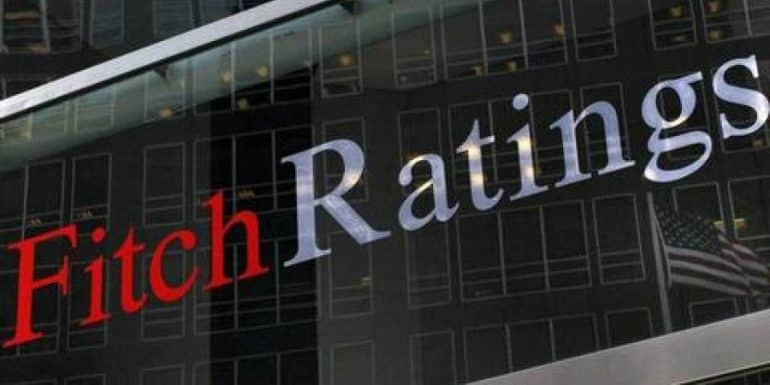The credit rating agency Fitch proceeded to confirm Greece's creditworthiness at grade "BB" with positive outlook.
In its commentary, Fitch notes that Greece has a high per capita income, well above the average of “BB” and “BBB” rated countries, and that governance performance and human resource development indicators are among the highest among other non-investment grade countries.
These strong points are contrasted with the still very high levels of non-performing loans (NPLs) and the very large amount of public and external debt.
The positive outlook reflects, according to the house, the expected steady reduction of public debt in the context of a still low average cost of borrowing, despite the large increase in government bond yields this year.
Greek banks have made substantial progress in improving their asset quality, greatly reducing the level of NPLs in the banking sector, Fitch adds.
The house forecasts that public debt as a percentage of GDP will decline to 171,6% of GDP by 2024 from 193,3% at the end of 2021, thanks to improving primary surpluses and favorable growth-interest dynamics.
Despite a big rise in government bond yields this year, with the 10-year rising from 1,3% at the end of 2021 to around 4% in June 2022, the ratio of interest expenditure to government revenue is expected to rise only limited (to 6% in 2024) and to remain much lower than the average of countries with a “BB” rating (which is projected at 10% in 2024). The average duration of Greek debt is one of the longest among all countries, at around 20 years. In addition, the debt is basically at fixed rates, limiting the impact of interest rate increases on the market.
Fitch expects the fiscal deficit to narrow further this year to 4,5% of GDP, but at a slower pace than previously forecast due to a worsening macroeconomic outlook and government support to cushion the impact of price increases in energy.
After the Greek economy grew at a rate of 8,3% in 2021, the macroeconomic outlook has worsened significantly in recent months as the Russian invasion of Ukraine has fueled the rise in energy prices and is affecting business and consumer confidence, with high inflation having an impact in real incomes and consumption dynamics, the house notes. Greece's total natural gas imports rely 40% on Russia, and the country is vulnerable to further price increases and potential disruptions in energy supply, he adds.
There are other factors that will support the economy's outlook, Fitch says, noting that the use of funds linked to the national recovery and resilience plan will accelerate this year, boosting investment and overall demand, and that indicators for tourism indicate further sector recovery.
The house revised its forecast for Greece's real GDP growth this year to 3,5% from 4,1% in January and its forecast for 2023 to 3,2% from 4% previously. For 2024, it predicts a further moderate slowdown in the growth rate to 2,8%.
As for inflation, he predicts that it will decrease in the second half of the year to reach average levels this year at 7,3%, while he expects a large reduction thereafter, specifically to 1,8% in 2023 and 1% in 2024.
For the overall increase in the minimum wage, which amounts to 7,5% compared to the levels at the end of 2021, it notes that it will support the purchasing power of households, albeit at the risk of adverse effects on labor demand and cost pass-through to prices.
For banks, Fitch highlights that the total level of NPLs fell in the first quarter of 2022 to €17,7 billion from €47,3 billion a year ago, with their ratio falling to 12,1% from 30,3% in the same period. However, it adds, progress in reducing NPLs has negatively impacted banks' profitability and capitalization due to higher loan loss provisions.
Source: RES-EAP
